#pádraig ó tuama
Explore tagged Tumblr posts
Text

Pádraig Ó Tuama, “The Lifeline”
2K notes
·
View notes
Text
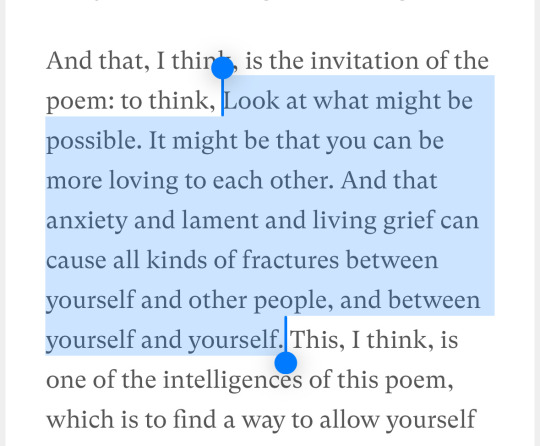
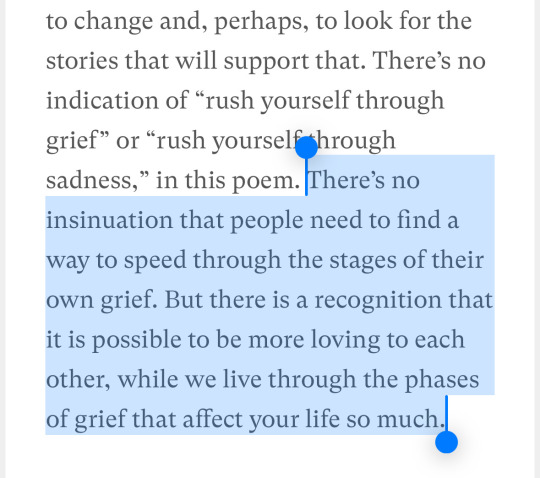
Pádraig Ó Tuama, on Rita Dove's poem "Eurydice, Turning" as featured in On Being: Poetry Unbound
#pádraig ó tuama#poetry unbound#rita dove#eurydice turning#words#interviews#typography#grief is a circular staircase#to be human#the great wound#id in alt text
2K notes
·
View notes
Quote
[Paul] Celan, whose parents were murdered at a camp in the Transnistria Governorate, translated Shakespeare while interned in a ghetto. For him, language was a project to be wrestled with. He believed it was possible for language to make something happen; and even if it didn’t make something happen, then at least it was worthwhile trying. He held people to account for loose language (his short correspondence with Heidegger, that phenomenologist, are extraordinary in their critique), and demanded that attention be paid to the impact that words can have in public.
Pádraig Ó Tuama, from his essay “The possibilities of language”, published at the Poetry Unbound substack, March 26, 2023
234 notes
·
View notes
Text
THE LIFELINE
Here is what I know: when
that bell tolls again, I
need to go and make something,
anything: a poem, a pie, a terrible
scarf with my terrible knitting, I
need to write a letter, remind myself
of any little lifeline around me.
When death sounds, I forget most
of what I learnt before. I go below.
I compare my echoes with other people’s
happiness. I carve that hole in my own
chest again, pull out all my organs once
again, wonder if they’ll ever work again
stuff them back again. Begin. Again.
PÁDRAIG Ó TUAMA
60 notes
·
View notes
Text
So much lurking in the silence of a poem and so much present in the text of it.
Desire, I think, is a portal where we look at the thing we want, but we also look at the other things that are gathered around that. And I don’t think I know of any better vehicle for holding all that together than poetry. In the lines of poetry, there’s so much said and so much implied, so much lurking in the silence of a poem and so much present in the text of it.
— Pádraig Ó Tuama, from the Poetry Unbound Podcast, “Yu Xiuhua | Crossing Half of China to Sleep with You” (via Poetry of Witness and Provocation)
176 notes
·
View notes
Text
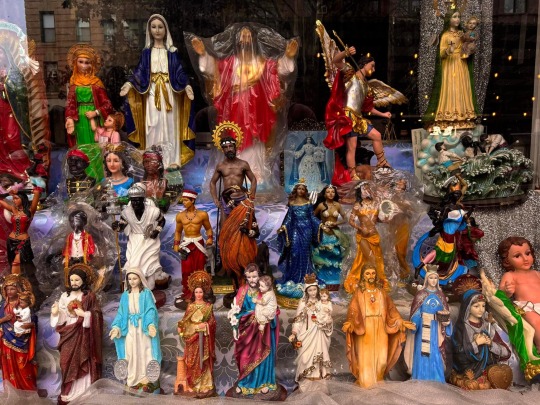
Someone for everyone in Brooklyn’s holy shop.
[Pádraig Ó Tuama]
* * * *
“Because here's something else that's weird but true: in the day-to day trenches of adult life, there is actually no such thing as atheism. There is no such thing as not worshipping. Everybody worships. The only choice we get is what to worship. And the compelling reason for maybe choosing some sort of god or spiritual-type thing to worship—be it JC or Allah, be it YHWH or the Wiccan Mother Goddess, or the Four Noble Truths, or some inviolable set of ethical principles—is that pretty much anything else you worship will eat you alive. If you worship money and things, if they are where you tap real meaning in life, then you will never have enough, never feel you have enough. It's the truth. Worship your body and beauty and sexual allure and you will always feel ugly. And when time and age start showing, you will die a million deaths before they finally grieve you. On one level, we all know this stuff already. It's been codified as myths, proverbs, clichés, epigrams, parables; the skeleton of every great story. The whole trick is keeping the truth up front in daily consciousness.” ― David Foster Wallace , This Is Water: Some Thoughts, Delivered on a Significant Occasion, about Living a Compassionate Life
+
“Never touch your idols: the gilding will stick to your fingers."
(Il ne faut pas toucher aux idoles: la dorure en reste aux mains.)” ― Gustave Flaubert, Madame Bovary
31 notes
·
View notes
Text
“It can be difficult to be kind to yourself. Even writing those words, I feel awkward, as if kindness towards myself is a luxury. Sometimes a poem helps me to step outside myself and let some wiser voice speak back to me, looking at my own failures with clear eyes, offering understanding and compassion. This, too, is a certain kind of bravery.” Poetry Unbound: 50 Poems to Open Your World, Pádraig Ó Tuama
6 notes
·
View notes
Photo
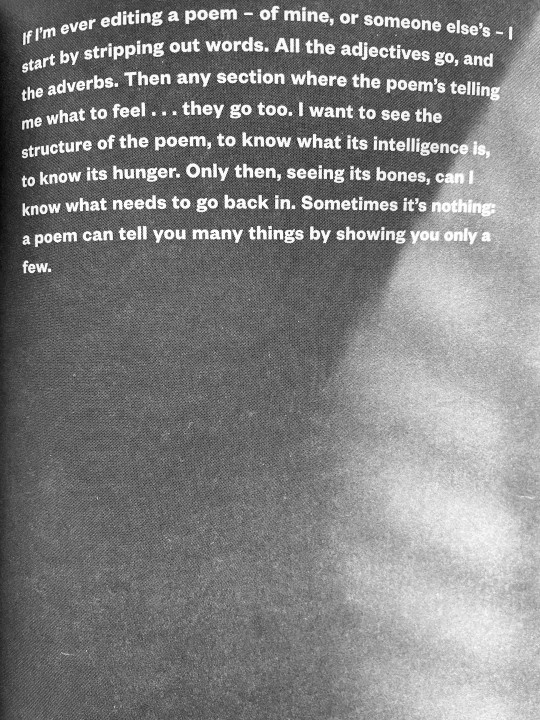
Pádraig Ó Tuama, from Poetry Unbound: 50 Poems to Open Your World (W.W. Norton & Company, 2023)
If I’m ever editing a poem - of mine, or someone else’s - I start by stripping out words. All the adjectives go, and the adverbs. Then any section where the poem’s telling me what to feel...they go too. I want to see the structure of the poem, to know what its intelligence is, to know its hunger. Only then, seeing its bones, can I know what needs to go back in. Sometimes it’s nothing: a poem can tell you many things by showing you only a few.
#pádraig ó tuama#poetry unbound#typography#books#editing#writing#poetry#i'm currently editing a huge batch of poems and i'm going to try this tactic
72 notes
·
View notes
Photo
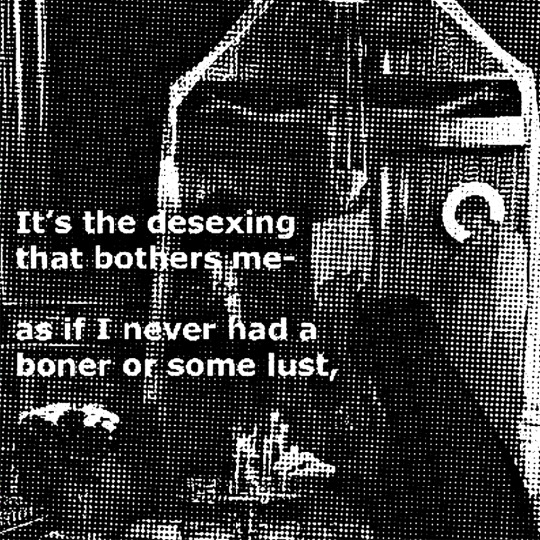
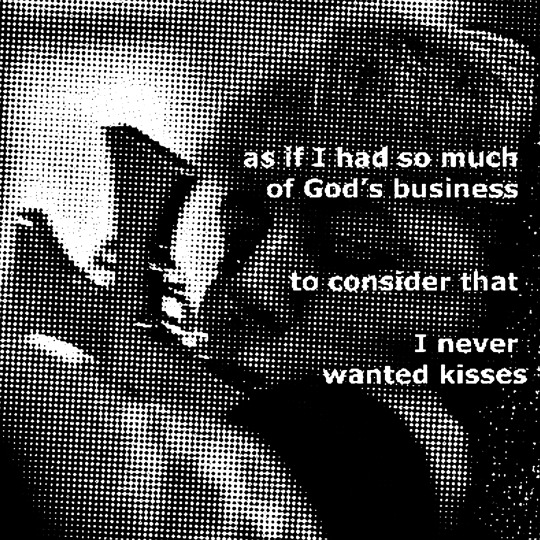
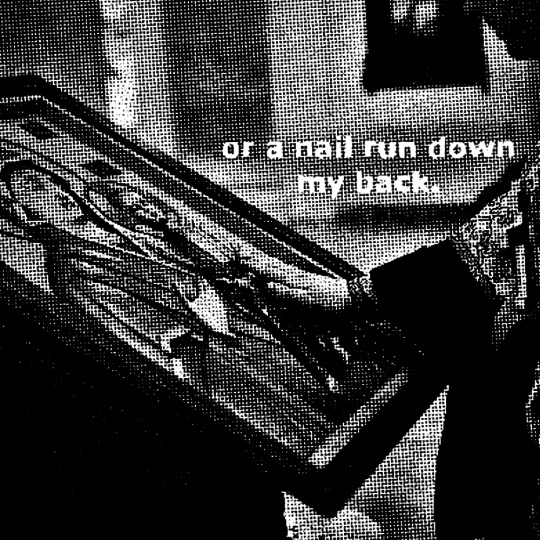
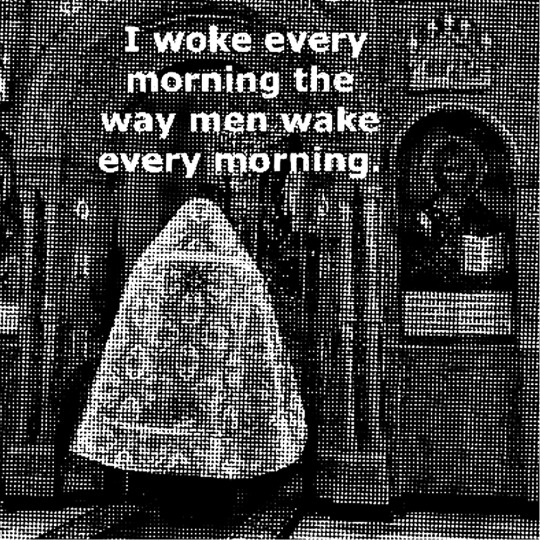
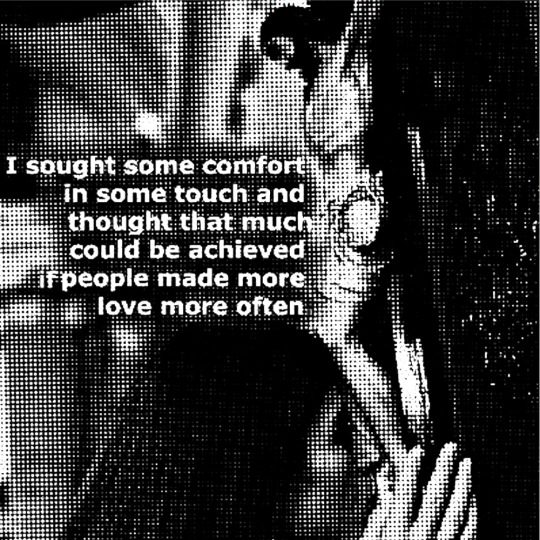
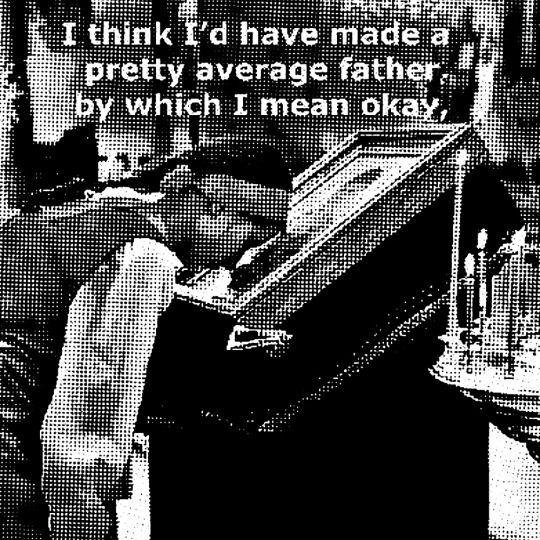
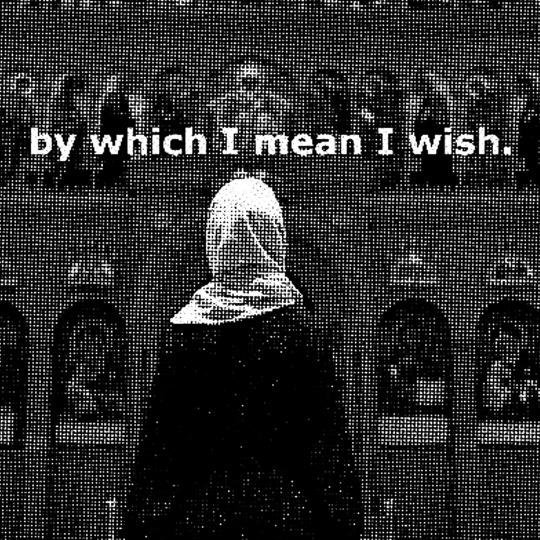
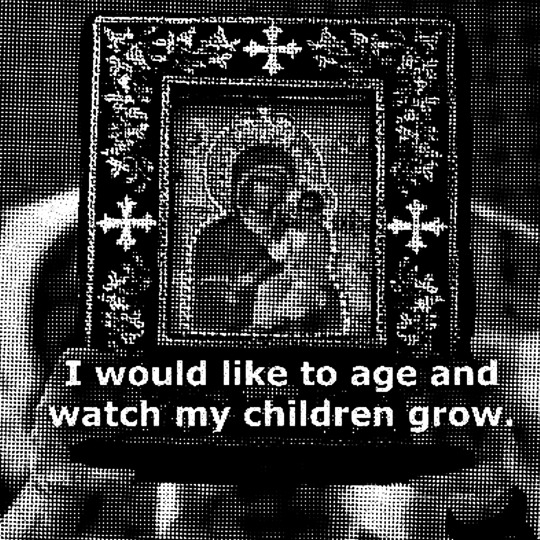
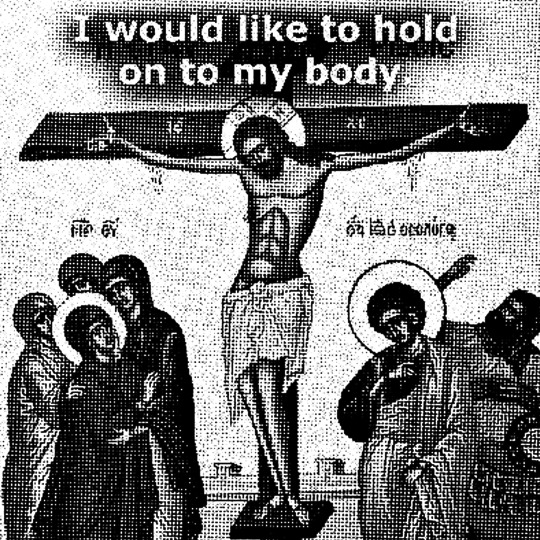
The poem “Jesus Desiring” by Pádraig Ó Tuama over pictures of Russian Orthodox worship.
Image descriptions:
A black and white halftone of a photograph of a Russian Orthodox nun lighting a candle in front of a large ikona of the crucifixion. There is white text on the image reading “It’s the desexing that bothers me- as if I never had a boner or some lust.”
A black and white halftone of a photograph of a woman wearing a platochik kissing a crucifix held up by a priest. There is white text on the image reading “as if I had so much of God’s business to consider that I never wanted kisses“
A black and white halftone of a photograph of a Russian Orthodox priest stroking a wooden icon depicting Mary holding Jesus, with white on it reading “ or a nail run down my back.”
A black and white halftone of a photograph of a Russian Orthodox priest entering the sanctuary at the back of a church, with an ikona of Christ on the right side. There is white text over the image reading “I woke every morning the way men wake every morning.”
A black and white halftone of a photograph of a woman kissing the base of a crucifix, with white text on the image reading “I sought some comfort in some touch and thought that much could be achieved if people made more love more often.“
A black and white halftone of a photograph of a woman leaning her forehead against an ikona in a church, there is white text on the image reading “I think I’d have made a pretty average father, by which I meanokay,”
A black and white halftone of a photograph of a woman wearing a platochik standing in front of the ikon covered wall seperating the sanctuary from the rest of the church. There is white text above her that reads “by which I mean I wish.”
A black and white halftone of a photograph of a man holding up an icon in a jewelled case. There is white text above him that reads “I would like to age and watch my children grow.”
A black and white halftone of a photograph of an ikona of the crucifixion with white text on it reading “I would like to hold on to my body.” End description.
63 notes
·
View notes
Text
twin peaks “there is a sadness in this world” / richard jackson “sometimes I don’t know how to live in the world. why is there always this scent of sorrow?” / hayden carruth “I had always been aware that the universe is sad; everything in it, animate or inanimate, the wild creatures, the stones, the stars, was enveloped in the great sadness, pervaded by it” / pádraig ó tuama “not all sadness comes from you, but sometimes you are just wearing the world’s sadness for a while and trying to figure out what to do with that” / ada limón “there is a solitude in this world I cannot pierce” / rainer maria rilke “don’t be afraid to suffer—take your heaviness and give it back to the earth’s own weight; the mountains are heavy, the oceans are heavy”
#w#comparatives#twin peaks#richard jackson#hayden carruth#pádraig ó tuama#ada limón#rainer maria rilke
557 notes
·
View notes
Text
In the first shock of sadness after someone’s death, I often need poems that remind me of what it is to be alive, or poems that echo the physical sensation of loss. The more I’ve loved someone the more empty life feels without them. But eventually, grief makes space for other feelings too. Gratitude returns: the gift of having loved someone – and having been loved back – doesn’t replace grief, but it does accompany it. Some poems help me as I mix gratitude in with grief; I’ll treasure those poems forever.
Pádraig Ó Tuama, Poetry Unbound: 50 Poems to Open Your World
2 notes
·
View notes
Text
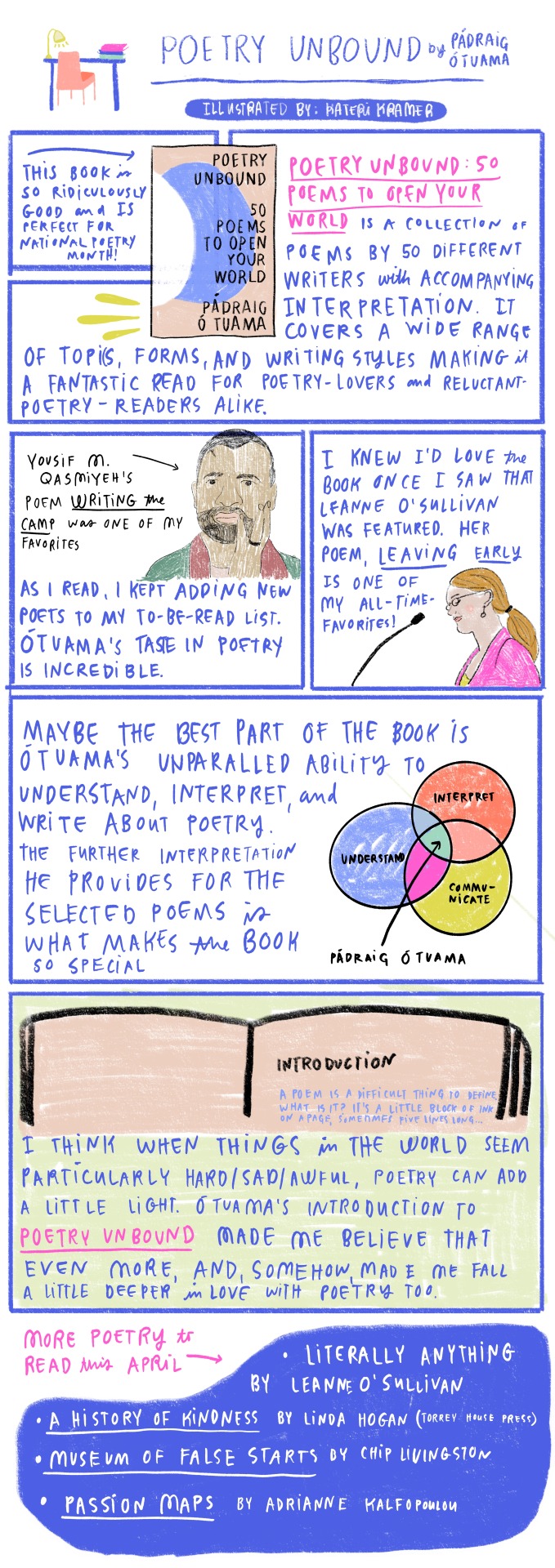
Sketch Book Reviews: Poetry Unbound by Pádraig Ó Tuama
Written and illustrated by Kateri Kramer
"This book is so ridiculously good and is perfect for National Poetry Month! Poetry Unbound: 50 Poems to Open Your World is a collection of poems by 50 different writers and accompanying interpretation. It covers a wide range of topics, forms, and writing styles making it a fantastic read for poetry-lovers and reluctant poetry-readers alike."
#therumpus#sketch book reviews#kateri kramer#comics#art#indielit#indiemagazine#book review#excerpt#literature#quotes#poetry unbound#Pádraig Ó Tuama
48 notes
·
View notes
Text
It can be hard to know, sometimes, what to do with experiences that are a burden. (Safety is the first destination to seek, though; art can wait.) Art does not promise solutions, but art can be one of the ways for reflecting on what time, memory, feeling, craft, creativity, change, and endings are doing in the psyche of the maker.
Pádraig Ó Tuama, from "Turning to Art", on the Poetry Unbound substack, published January 7, 2024
75 notes
·
View notes
Text
[ t h e ] n o r t h [ e r n ] [ o f ] i r e l a n d
Padraig Ó Tuama
It is both a dignity and
a difficulty
to live between these
names,
perceiving politics
in the syntax of
the state.
And at the end of the day,
the reality is
that whether we
change
or whether we stay
the same
these questions will
remain.
Who are we
to be
with one
another?
and
How are we
to be
with one
another?
and
What to do
with all those memories
of all those funerals?
and
What about those present
whose past was blasted
far beyond their
future?
I wake.
You wake.
She wakes.
He wakes.
They wake.
We Wake
and take
this troubled beauty forward.
#poetry#Pádraig Ó Tuama#northern ireland#north of ireland#community#conflict#peace#politics#statehood
2 notes
·
View notes

